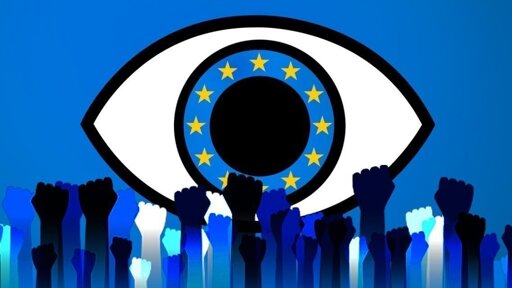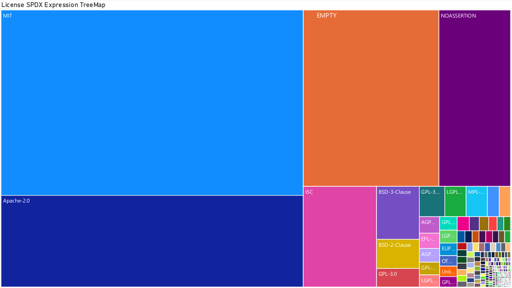Menstrual tracking app data is a ‘gold mine’ for advertisers that risks women’s safety
-
I don't even need to follow that link to know what this is
-
No woman in the US should be tracking their period in any sort of app or software.
Convenience wins out 99% of the time. Why carry a pen/paper when one can use the same device they already carry around? Hell, I don't even use pen/paper anymore because my phone handles all that for me.
That said, I did set up some infrastructure at home that I use to store as much of my private data as possible.
-
Cambridge researchers urge public health bodies like the NHS to provide trustworthy, research-driven alternatives to platforms driven by profit.
Women deserve better than to have their menstrual tracking data treated as consumer data - Prof Gina Neff
Smartphone apps that track menstrual cycles are a “gold mine” for consumer profiling, collecting information on everything from exercise, diet and medication to sexual preferences, hormone levels and contraception use.
This is according to a new report from the University of Cambridge’s Minderoo Centre for Technology and Democracy, which argues that the financial worth of this data is “vastly underestimated” by users who supply profit-driven companies with highly intimate details in a market lacking in regulation.
The report’s authors caution that cycle tracking app (CTA) data in the wrong hands could result in risks to job prospects, workplace monitoring, health insurance discrimination and cyberstalking – and limit access to abortion.
They call for better governance of the booming ‘femtech’ industry to protect users when their data is sold at scale, arguing that apps must provide clear consent options rather than all-or-nothing data collection, and urge public health bodies to launch alternatives to commercial CTAs.

Menstrual tracking app data is a ‘gold mine’ for advertisers that risks women’s safety – report
Smartphone apps that track menstrual cycles are a ‘gold mine’ for consumer profiling, collecting information on everything from exercise, diet and medication
University of Cambridge (www.cam.ac.uk)
I legitimately have an idea for an app that solves this problem. Its key feature, besides being open source, would be that people without uteruses could use it too, making any data conceivably collected useless.
I don’t have the skills to make it myself (yet), but if any developer wants to talk I’ll give the idea away. I just want it to be made.
App would be open source, all data local. Perhaps the option to sync to encrypted iCloud or Android equivalent, but certainly not a cloud-based option you need a new login for. All the features currently in these kinds of apps and that make them useful for menstruating people. Now replace “period” with “hair cut”. Non-menstruating people can now use it, earnestly, for tracking when their last hair cut was, making it useful and the data (if it were to be collected somehow) just noise.
I even have a name in mind: “hair**.**cuts” (heavy emphasis on the period in the name.) Idea is that anyone with it on their device has plausible deniability that they are using it for period tracking, but the “period” in the name is an implicit wink so we all know what it’s really being used for.
-
Thank you for the public service announcement, I had no idea this was such a common issue. I should probably keep some emergency testicles around as well..

-
To be honest, the backing up is not trivial for most.
Even for me, while the technical aspect is no problem, the mental burden of thinking to do the backup and then the few minutes it takes to do the backup. Not a problem for a local only FOSS app but its quite a task to keep track of 10+ apps with different backup/export options, backup-passwords and so on.
I use a ToDo-App with recurring tasks but still -
Cambridge researchers urge public health bodies like the NHS to provide trustworthy, research-driven alternatives to platforms driven by profit.
Women deserve better than to have their menstrual tracking data treated as consumer data - Prof Gina Neff
Smartphone apps that track menstrual cycles are a “gold mine” for consumer profiling, collecting information on everything from exercise, diet and medication to sexual preferences, hormone levels and contraception use.
This is according to a new report from the University of Cambridge’s Minderoo Centre for Technology and Democracy, which argues that the financial worth of this data is “vastly underestimated” by users who supply profit-driven companies with highly intimate details in a market lacking in regulation.
The report’s authors caution that cycle tracking app (CTA) data in the wrong hands could result in risks to job prospects, workplace monitoring, health insurance discrimination and cyberstalking – and limit access to abortion.
They call for better governance of the booming ‘femtech’ industry to protect users when their data is sold at scale, arguing that apps must provide clear consent options rather than all-or-nothing data collection, and urge public health bodies to launch alternatives to commercial CTAs.

Menstrual tracking app data is a ‘gold mine’ for advertisers that risks women’s safety – report
Smartphone apps that track menstrual cycles are a ‘gold mine’ for consumer profiling, collecting information on everything from exercise, diet and medication
University of Cambridge (www.cam.ac.uk)
oh shit. i have a fitbit versa 2 which has menstrual tracking on it and I'm using an android phone.
-
I'm sorry if I misgendered you. I was already exhausted from the other comments that clearly state that they are men and probably was biased in that regard. But my point still stands that there is no reason to completely forego tracking apps.
Yeah, and of course I haven't looked into all of the tech and security of ways to set up these apps. I'm just exhausted myself from it seeming like nothing is ever 100% secure or free from risk, and I'm so cynical about the country I live in and what it will become in the future that I would just rather not trust anything at this point. I'm sure that doesn't 100% hold water/is completely rational, but it's where my head is.
-
I mean there are at least 2 apps for that in F-Droid. It's just that most people are FOSS illiterate and only if a big corpo give them shit then they trust it.
I tried to talk to my wife about data ownership, opensource, etc. but it's difficult to convey how important it is. She uses Flow. I'm trying to get her to at least try alternatives such as Drip
-
Thank you !
-
Not everyone uses Android devices.
Edit: do you people not understand context? The person I replied to specifically mentioned F-Droid, which is ANDROID ONLY.
Well on iOS there’s the Apple health app. To my knowledge it stores health data locally. I’ll double check now.
Edit: it does store health data in iCloud by default, but according to Apple its end to end encrypted
By default, iCloud automatically keeps your Health app data, including health records, up to date across your devices. To disable this feature, open iCloud settings and turn off Health. iCloud protects your health records data by encrypting it both in storage and during transmission. If you're using iOS 12 or later and have turned on two-factor authentication for your Apple Account, health records are encrypted using end-to-end encryption through iCloud. This means only you can access this information, and only on devices where you’re signed in to iCloud. No one else, not even Apple, can access end-to-end encrypted information.
-
Cambridge researchers urge public health bodies like the NHS to provide trustworthy, research-driven alternatives to platforms driven by profit.
Women deserve better than to have their menstrual tracking data treated as consumer data - Prof Gina Neff
Smartphone apps that track menstrual cycles are a “gold mine” for consumer profiling, collecting information on everything from exercise, diet and medication to sexual preferences, hormone levels and contraception use.
This is according to a new report from the University of Cambridge’s Minderoo Centre for Technology and Democracy, which argues that the financial worth of this data is “vastly underestimated” by users who supply profit-driven companies with highly intimate details in a market lacking in regulation.
The report’s authors caution that cycle tracking app (CTA) data in the wrong hands could result in risks to job prospects, workplace monitoring, health insurance discrimination and cyberstalking – and limit access to abortion.
They call for better governance of the booming ‘femtech’ industry to protect users when their data is sold at scale, arguing that apps must provide clear consent options rather than all-or-nothing data collection, and urge public health bodies to launch alternatives to commercial CTAs.

Menstrual tracking app data is a ‘gold mine’ for advertisers that risks women’s safety – report
Smartphone apps that track menstrual cycles are a ‘gold mine’ for consumer profiling, collecting information on everything from exercise, diet and medication
University of Cambridge (www.cam.ac.uk)
no sympathy. Learn how to use a spreadsheet for christ's sake
-
::: spoiler spoiler
safsafsfsafs
:::Oh give me a break. Don't use corporate slop if you don't want to be treated like cattle. That's basic
-
So why the fuck don’t women just use that?
They probably don't know about it. If I search "period tracker" on Google Play, Drip is in about 40th place in the results. That's several screens down, past a bunch of search suggestions, and the parts where it's open source, on-device, and optionally encrypted aren't clear until I tap on it and read the description.
And you probably can’t even get drip on iPhones.
There's some irony in a comment dealing with people making decisions that are against their interests because they're insufficiently informed speculating incorrectly about something like this when it's easy to check. Drip is, in fact available for iPhone.
Yeah, discoverability is a massive issue on the Play store. If it doesn't bring Daddy Google 30% of whatever they shovel through in ad money or mtx, then you won't see it.
-
Cambridge researchers urge public health bodies like the NHS to provide trustworthy, research-driven alternatives to platforms driven by profit.
Women deserve better than to have their menstrual tracking data treated as consumer data - Prof Gina Neff
Smartphone apps that track menstrual cycles are a “gold mine” for consumer profiling, collecting information on everything from exercise, diet and medication to sexual preferences, hormone levels and contraception use.
This is according to a new report from the University of Cambridge’s Minderoo Centre for Technology and Democracy, which argues that the financial worth of this data is “vastly underestimated” by users who supply profit-driven companies with highly intimate details in a market lacking in regulation.
The report’s authors caution that cycle tracking app (CTA) data in the wrong hands could result in risks to job prospects, workplace monitoring, health insurance discrimination and cyberstalking – and limit access to abortion.
They call for better governance of the booming ‘femtech’ industry to protect users when their data is sold at scale, arguing that apps must provide clear consent options rather than all-or-nothing data collection, and urge public health bodies to launch alternatives to commercial CTAs.

Menstrual tracking app data is a ‘gold mine’ for advertisers that risks women’s safety – report
Smartphone apps that track menstrual cycles are a ‘gold mine’ for consumer profiling, collecting information on everything from exercise, diet and medication
University of Cambridge (www.cam.ac.uk)
File this under "no shit."
-
Cambridge researchers urge public health bodies like the NHS to provide trustworthy, research-driven alternatives to platforms driven by profit.
Women deserve better than to have their menstrual tracking data treated as consumer data - Prof Gina Neff
Smartphone apps that track menstrual cycles are a “gold mine” for consumer profiling, collecting information on everything from exercise, diet and medication to sexual preferences, hormone levels and contraception use.
This is according to a new report from the University of Cambridge’s Minderoo Centre for Technology and Democracy, which argues that the financial worth of this data is “vastly underestimated” by users who supply profit-driven companies with highly intimate details in a market lacking in regulation.
The report’s authors caution that cycle tracking app (CTA) data in the wrong hands could result in risks to job prospects, workplace monitoring, health insurance discrimination and cyberstalking – and limit access to abortion.
They call for better governance of the booming ‘femtech’ industry to protect users when their data is sold at scale, arguing that apps must provide clear consent options rather than all-or-nothing data collection, and urge public health bodies to launch alternatives to commercial CTAs.

Menstrual tracking app data is a ‘gold mine’ for advertisers that risks women’s safety – report
Smartphone apps that track menstrual cycles are a ‘gold mine’ for consumer profiling, collecting information on everything from exercise, diet and medication
University of Cambridge (www.cam.ac.uk)
If you have an iPhone just use the Apple Health app. It works great and the data is encrypted and never shared with anyone.
-
No woman in the US should be tracking their period in any sort of app or software.
Apple Health encrypts your data and never sends it to anyone else.
-
Do you really need a computer and social media? Just read the newspaper.
-
I happen to be a penis owner.
So what would happen if I were to install and use such a monthly tracker app and pretend I've been having regular monthlies for a while, then suddenly I miss a couple periods, then suddenly start having periods again?
Would the cops come beating my door down claiming I had an abortion?

Fuck this dystopian mass surveillance shit!
Congratulations, is it paid off?
-
::: spoiler spoiler
safsafsfsafs
:::::: spoiler spoiler
safsafsfsafs
::: -
Cambridge researchers urge public health bodies like the NHS to provide trustworthy, research-driven alternatives to platforms driven by profit.
Women deserve better than to have their menstrual tracking data treated as consumer data - Prof Gina Neff
Smartphone apps that track menstrual cycles are a “gold mine” for consumer profiling, collecting information on everything from exercise, diet and medication to sexual preferences, hormone levels and contraception use.
This is according to a new report from the University of Cambridge’s Minderoo Centre for Technology and Democracy, which argues that the financial worth of this data is “vastly underestimated” by users who supply profit-driven companies with highly intimate details in a market lacking in regulation.
The report’s authors caution that cycle tracking app (CTA) data in the wrong hands could result in risks to job prospects, workplace monitoring, health insurance discrimination and cyberstalking – and limit access to abortion.
They call for better governance of the booming ‘femtech’ industry to protect users when their data is sold at scale, arguing that apps must provide clear consent options rather than all-or-nothing data collection, and urge public health bodies to launch alternatives to commercial CTAs.

Menstrual tracking app data is a ‘gold mine’ for advertisers that risks women’s safety – report
Smartphone apps that track menstrual cycles are a ‘gold mine’ for consumer profiling, collecting information on everything from exercise, diet and medication
University of Cambridge (www.cam.ac.uk)
Drip (Android/iOS)








